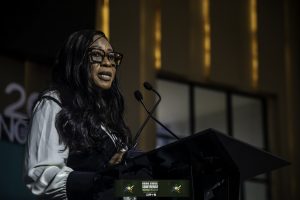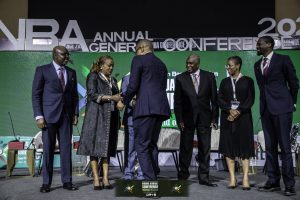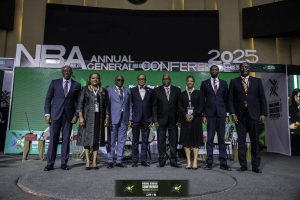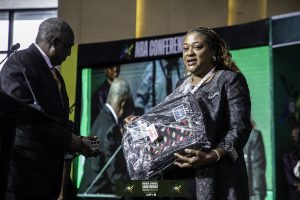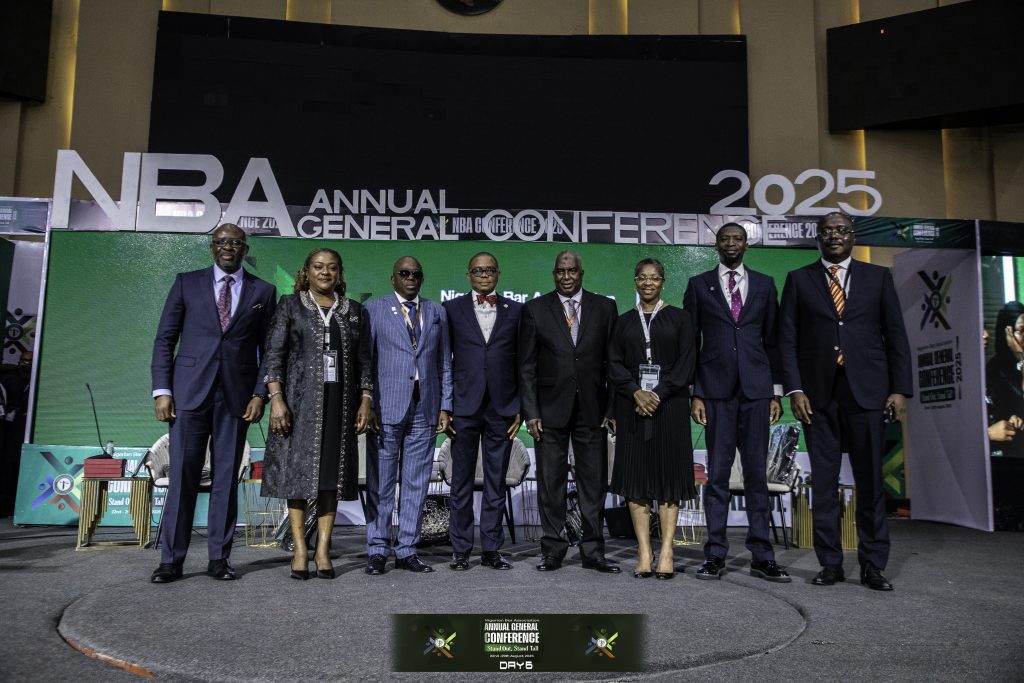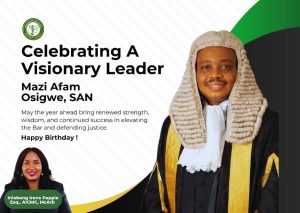On the sixth day of the 65th Nigerian Bar Association (NBA) Annual General Conference (AGC) in Enugu, the plenary session themed “Nigerian Bar Association: A Peep into the Future” offered an in-depth look at the evolving role of the NBA in Nigeria’s legal and socio-political landscape.
Moderated by Mr. Jude Udo Ilo and coordinated by Barbara Omosun, the session convened a panel of distinguished legal practitioners who reflected on the Association’s dual mandate as both a professional regulator and the conscience of the nation.
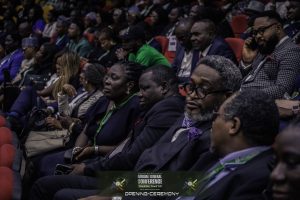
Discussions underscored inclusivity, technological adaptation, institutional reform, ethical advocacy, and welfare as critical pillars for the NBA’s future.
Bridging Perception Gaps and Strengthening Advocacy
Panelists observed that a perception gap exists between the Association’s institutional role and the lived experience of its members, particularly younger lawyers. Concerns were raised regarding inadequate advocacy for members’ welfare, declining public respect for the profession, and the NBA’s reduced influence in national policy debates.
The panel stressed that for the NBA to remain relevant, it must actively champion justice, human rights, and governance reforms while ensuring members’ voices are heard.
Inclusivity, Mentorship, and Empowerment
Persistent challenges in inclusivity were highlighted, particularly the marginalisation of young lawyers, women, and practitioners outside metropolitan areas. The panel called for deliberate structures to empower these groups, including mentorship programs, fair remuneration implementation, and targeted opportunities in emerging areas of legal practice such as maritime, energy, and environmental law.
Institutional Reform and Secretariat Professionalisation
Structural weaknesses within the NBA Secretariat were identified as major obstacles to efficiency and sustainability. High staff turnover, lack of professionalisation, and discontinuity in reform agendas were cited as impediments. Recommendations included merit-based recruitment, long-term career development frameworks, and mechanisms to ensure the continuity of policies across successive administrations.
Technology, Innovation, and Global Competitiveness
The session emphasized that digital transformation is crucial for aligning the NBA with global legal standards. Panelists advocated for the creation of a “NBA Digital Hub”, AI-powered legal support platforms, digitised continuing legal education, and virtual member engagement tools. Such initiatives would not only enhance service delivery but also strengthen the Bar’s influence in an increasingly knowledge-driven legal economy.
Key Takeaways and Recommendations
- Reclaim Advocacy and Ethical Leadership: Amplify the NBA’s voice on justice, democracy, and governance while upholding high ethical standards.
- Prioritise Member Welfare and Inclusion: Expedite implementation of the remuneration order, enhance mentorship structures, and create equitable leadership opportunities.
- Institutional Strengthening: Professionalise Secretariat operations, ensure reform continuity, and develop long-term strategic planning.
- Harness Technology for Growth: Leverage AI, digital platforms, and e-learning to increase member access, efficiency, and global relevance.
- Future-Ready Legal Practice: Encourage adoption of specialized practice areas, cross-sector collaboration, and innovation to meet the demands of Nigeria’s dynamic legal landscape.
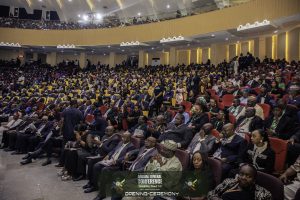
Conclusion
The plenary session concluded that the NBA stands at a pivotal juncture. Its success in the coming decades will hinge on the Association’s ability to balance the protection of members’ welfare with its responsibility as a fearless defender of justice. By embedding inclusivity, accountability, ethical advocacy, and technological innovation at its core, the NBA can transform into a professional home for all lawyers and a steadfast moral compass for the nation.
Read More:
NBA NEC Holds Pre-Conference Meeting in Enugu, Adopts Key Resolutions
Photos:
